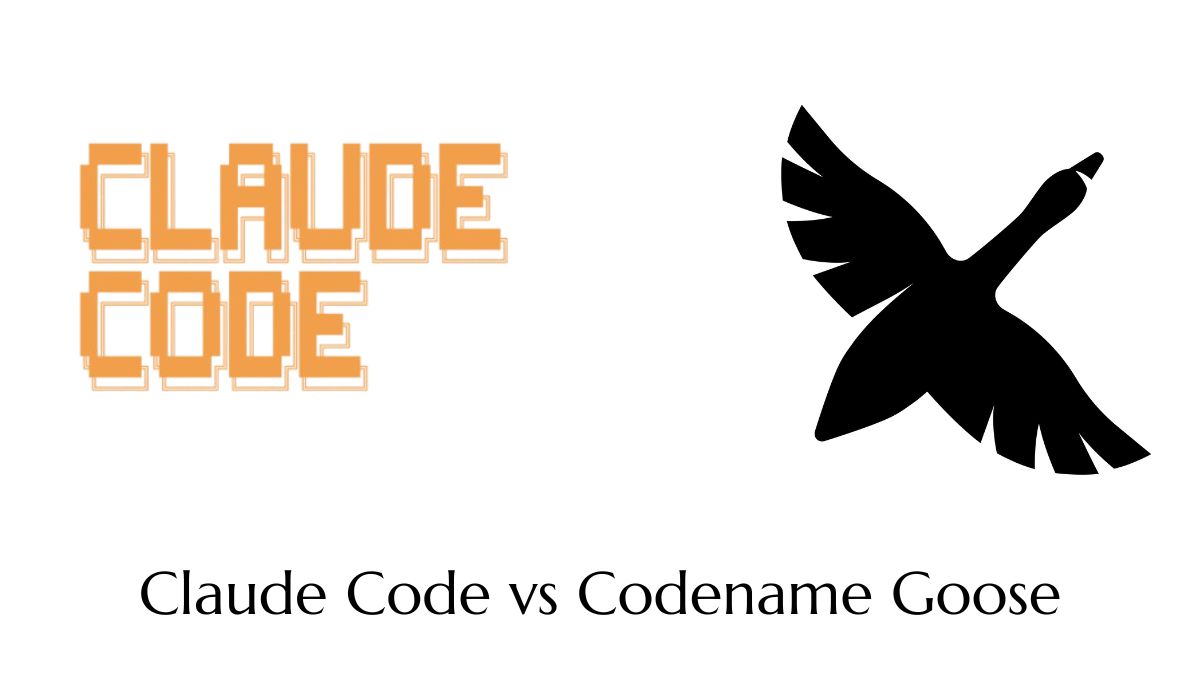The world of startups is always evolving, and with new technologies come new opportunities. If you’re looking to invest in the future, you should look into web3 startups.
Web3 refers to the latest generation of internet technologies, which include blockchain, decentralized applications, and more. These startups are at the forefront of a new era of online innovation and are poised to take over the world!
In this article, we will talk about web3 startups in detail, what it is, how it works, how important it is, and some of the best web3 startups to invest in.
What are Web3.0 Startups?
As I mentioned at the start of the article, web3.0 is the 3rd generation of the internet that mainly focuses on data security to give the total user control over their data and activities.
The whole system is based on blockchain technology, a distributed ledger that records and stores data in a secure and immutable way.
Now, what are Web3 startups?
Web3 Startups are companies that build applications and platforms on the decentralized web (web3.0). The applications are built to offer users enhanced security and privacy while they use the internet.
These startups are focused on creating distributed solutions for problems in the web 2.0 world, such as data privacy and security issues.
Since these companies are using blockchain technology to develop their applications, they can leverage the capabilities of decentralized networks and smart contracts to create autonomous and secure platforms. This means that users can benefit from the advantages of blockchain technology in terms of data privacy and security, as well as unprecedented levels of transparency and trust.
Overall, Web3 startups are pushing the boundaries of what is possible on the internet by creating applications that give users full control over their data and activities.
Also read – Bitcoin Dominance 101: Everything You Need To know
How do web3 startups work?
Web3 startups make use of various blockchain technologies and protocols to create decentralized applications (dApps). These dApps are built on top of existing blockchains such as Ethereum and Bitcoin, providing secure and trustless transactions that are open and accessible to anyone.
Web3 startups use protocols like IOTA, MaidSafe, and InterPlanetary File System (IPFS) to create user-friendly applications that are fast, secure, and cost-effective. These protocols allow developers to build dApps that are distributed and decentralized, reducing the cost of running the applications and providing greater scalability.
Web3.0 startups also use distributed ledger technology, such as the blockchain and smart contracts, to provide transparency and security. Smart contracts are automated contracts that are stored on the blockchain and can be used to execute transactions without a third-party intermediary.
Why are web3 startups important?
Web3 startups are important because they provide a new way of doing business in the digital age. With Web3.0, companies can now create and launch decentralized applications (dApps) that are not controlled by a single entity. This means that users can interact with these dApps directly without going through a middleman or intermediary.
This also means that users can trust the security of their data, as it is held in distributed ledgers and is protected from malicious actors. Additionally, these startups provide an opportunity for entrepreneurs to create innovative solutions and services that can benefit society at large. By taking advantage of the new technology, startups can create products and services that are more secure, reliable, and cost-effective than ever before.
In other words, Web3.0 projects are revolutionizing the way people do business online.
Web3.0 startup features
Web3 startups are powered by various technologies they leverage to provide their users with increased security, transparency, and trust. These features may include:
Secure Encryption
Web3 startups use encryption techniques to ensure that all data transmitted by their users is secure. This encryption makes it difficult for hackers to access private information and keeps user data safe.
Trustworthy Transactions
Web3 startups use blockchain technology to enable users to send and receive payments securely in a trustless manner. Transactions are recorded on an immutable ledger, making it impossible for anyone to counterfeit or duplicate a transaction.
Decentralized Governance
Web3 startups use distributed ledger technology to enable users to make decisions on how the service should be run. This allows users to control who has access to their data while also allowing them to set rules and regulations enforced through code.
Verification
Web3 startups use cryptography to verify user identities and transactions. This technology makes it possible for users to prove their identity without having to use traditional identification methods.
Smart Contracts
Web3 startups use smart contracts to automate and streamline processes. Smart contracts are digital agreements that are enforced through code, making it possible for users to conduct transactions with complete trust and transparency.
Data Protection
Web3 startups use private, distributed networks to keep user data safe and secure. Private networks maintain an immutable ledger that ensures that user data is kept safe from unauthorized access or manipulation.
These features make Web3 startups highly attractive to users, as they offer a level of security, trust, and transparency that is not available with traditional web applications. Additionally, these features allow Web3 startups to provide their users with a more secure, efficient, and cost-effective way to conduct business.
How can web 3 startups help solve many issues?
Web 3 startups have the potential to solve a broad range of issues. These startups focus on providing innovative solutions to help businesses, individuals, and organizations achieve their goals and objectives.
They can help with various tasks, from creating new products and services to improving customer engagement and service delivery. Web 3 startups can also provide resources to businesses, such as the ability to access data or a platform that allows users to interact innovatively.
Web 3 startups also have the potential to help solve issues related to digital privacy, security, and trust. They can provide a secure platform for users to interact and share information without the risk of their data being exposed. Additionally, they can help businesses protect against cyber-attacks and malicious activities.
Another good problem-solving example is plagiarized content detection. Web 3 startups can create innovative solutions to detect plagiarized content and ensure that original work is credited properly. This can help protect the intellectual property rights of individuals, businesses, and organizations.
With web3.0 startups can help organizations become more agile and efficient. By leveraging the power of blockchain technology, these startups can provide a platform that simplifies and streamlines processes. This can result in a shorter development cycle, improved scalability, and increased efficiency.
Also read – How Does The Role of Technology in Business Drive Success?
Pros and cons of web3.0 startups
The main benefit that web3.0 startups provide is the potential for innovation and disruption in the industry. By introducing new technology, these startups have the chance to revolutionize current business models, create entirely new markets or reshape existing ones.
At the same time, some risks are associated with web3.0 startups. The most obvious risk is the potential failure of the venture due to insufficient resources or inadequate business planning. Additionally, there may also be a lack of industry experience or understanding of the founding team, and they could fail to identify and capitalize on opportunities.
Finally, web3.0 startups face the challenge of convincing potential investors of their value and gaining adoption in a competitive environment. Companies must build a strong team, have an effective marketing strategy and create an innovative business model that can stand out from the rest.
In conclusion, while there are certain risks associated with web3.0 startups, many of these can be managed through careful planning and execution. With the right mix of skills, resources, and ambition, web3.0 startups have the potential to disrupt existing markets and create entirely new ones. As such, entrepreneurs looking for a way to make an impact should consider investing in a web3.0 startup.
Recent Top 5 Web3 Startups with the highest funding
1. Near Protocol
Near is a decentralized platform that enables developers to create powerful and secure applications with the help of their advanced smart contracts. Along with developers, users also benefit from the platform, becoming web3 citizens, allowing them to securely access, store and trade digital assets with low latency. In addition, you can access dApps built on the platform to get more freedom and access to decentralized services.
On the other hand, developers can use resources and Developer tools such as Quickstart Guide, Contract examples, Nomicon, Aurora(EVM), Rust SDK, JavaScript SDK, NEAR CLI, and JavaScript API.
2. Solana
Solana is a blockchain platform that focuses on scalability and performance with an impressive 3,321 transactions per second capabilities. It leverages a combination of Proof-of-Stake and a custom consensus protocol called Proof-of-History to power its blockchain.
It has created an open-source SDK to help developers create more efficient decentralized applications. Additionally, Solana provides a trustless exchange called Serum and has partnered with companies such as Binance, OKEx, and Polychain.
The most amazing feature I found about Solana is the basic and beginner’s guide for developers to learn and build apps.
From basic Solana development courses to advanced Blockchain development and Security, Solana provides a comprehensive guide for developers to get started with the platform. That is really helpful for starters who have always wanted to build something on Web3.
3. Cosmos
Next on the list, we have Cosmos: The Internet of blockchain. It is a powerful and modular blockchain framework composed of many independent blockchains called zones that are secured on the root chain. It also has interoperability between different blockchains and provides an excellent way for developing distributed applications.
Cosmos provides developers with an SDK known as the Cosmos SDK for building apps and blockchains in any language. Also, developers can use various development tools, such as Tendermint Core and the IBC protocol, for communication between blockchains.
4. Polkadot
Polkadot is a decentralized blockchain platform as well as cryptocurrency that allows users to create and use a variety of different decentralized applications. It is powered by a technology called Substrate, enabling developers to build their blockchains within Polkadot quickly.
It is a great platform for developers looking to create distributed applications and smart contracts on Web3, as it comes with features such as a built-in security system, interoperability between different networks, and more.
5. Dfinity
Last but not least, we have Dfinity, a decentralized cloud computing platform that allows developers to deploy and build applications on its own public blockchain.
It also provides a high-speed consensus mechanism called Threshold Relay, which helps to achieve near-instant finality, making it one of the fastest blockchains available.
It comes with a range of development tools, such as the Dfinity SDK, WebAssembly compiler, and client libraries to help developers create their own decentralized business applications and smart contracts.
These are some of the top Web3 startups that have been dominating the space with their incredible features, services, and solutions.
Also Read – Supply Chain Technology: Everything You need to know
Conclusion
Web3 Startups are one of the most innovative and rapidly evolving areas in the tech space. They offer an opportunity for developers to build on the Web3 platform, creating new ways to interact and engage with consumers.
By leveraging the power of blockchain technology, these startups can provide features, services, and solutions that are much more efficient and secure than traditional methods.
If you’re looking to get into the Web3 space, you should consider these top startups. With their innovative solutions and services, they’re sure to revolutionize the way we interact with one another. And if you’re up for it, consider developing your own Web3.0 application!
FAQs
Are metaverse and web3 related?
Yes, metaverse and web3 are related. Metaverse is an open-source blockchain platform that enables users to create decentralized applications (dApps) and digital assets. It was developed in 2003(Although the concept isn’t new; it first appeared in 1992, and later many companies tried to work on that) as a platform to facilitate the creation of decentralized networks that are free from central authorities and intermediaries.
Web3.0, on the other hand, is a set of protocols that allow users to interact with blockchains and metaverse dApps. To interact with dApps, users must use a web3 wallet. Web3 also provides developers with the tools and resources to create more complex applications. Using blockchain and metaverse, users can make transactions without a third-party intermediary or central authority. This provides users with greater privacy and security when making digital transactions.
How to leverage web3 startups?
Web3 startups are emerging technology that uses blockchain technology to create decentralized applications (dApps). It is important to understand the different components of the technology, such as the blockchain, smart contracts, and distributed ledger technology (DLT). Once you understand the fundamentals of web3 startups, you can explore ways to leverage them for your business.
One way to leverage web3 startups is through the use of tokens. Tokenization is the process of creating a digital asset to represent an ownership interest in a project, company, or organization. Tokens can be used to power dApps, fund projects, and even incentivize users. By issuing tokens, startups can access new sources of capital and gain a larger user base.





